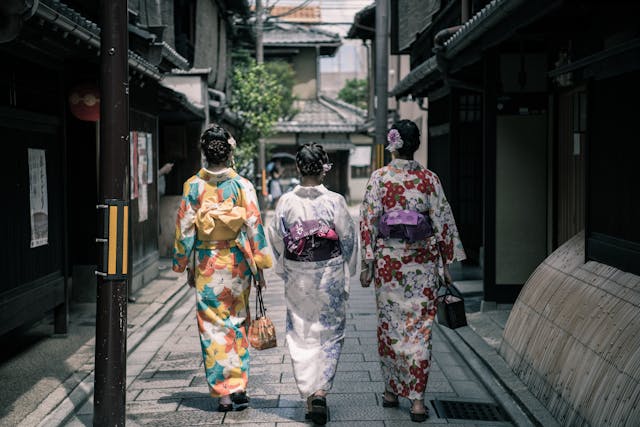
Most Popular Japanese Names: A Window into Culture and Meaning
PillowNap TeamShare
Japanese names are rich with history, symbolism, and cultural nuances. Each name carries a unique story, reflecting not only the parents' wishes for their child but also broader cultural values and traditions. Here, we explore some of the most popular Japanese names for boys and girls, delving into their meanings and the fascinating world of Japanese naming customs.
10 Most Popular Japanese Names for Boys

- Haruto (陽翔): Meaning "sunlight" or "soaring sun," this name conveys hope, positivity, and ambition.
- Sota (颯太): This name means "sudden" or "quick," often associated with a strong and decisive personality.
- Yuto (悠人): Meaning "gentle person" or "calm person," this name evokes a peaceful and kind nature.
- Minato (湊): This name means "harbor," symbolizing a place of refuge, safety, and connection.
- Haruki (晴樹): Combining the characters for "clear weather" and "tree," this name suggests resilience and growth.
- Aoi (蒼): Meaning "blue," this name is often associated with the vastness of the sky and sea, symbolizing freedom and tranquility.
- Ren (蓮): Meaning "lotus," this name represents purity, enlightenment, and resilience, as the lotus blooms in muddy waters.
- Sora (空): Meaning "sky," this name evokes a sense of limitlessness, possibility, and dreams.
- Riku (陸): Meaning "land," this name suggests stability, grounding, and a connection to nature.
- Yuma (悠真): Meaning "truthful leisure" or "gentle truth," this name hints at a calm and honest personality.
10 Most Popular Japanese Names for Girls

- Himari (陽葵): Meaning "sunflower" or "sunlight," this name exudes warmth, joy, and vitality.
- Sakura (さくら): Meaning "cherry blossom," this iconic name represents beauty, transience, and the renewal of life.
- Aoi (葵): While it can mean "blue" like the boys' name, for girls, it often refers to the hollyhock flower, symbolizing aspiration and ambition.
- Yui (結衣): Meaning "to bind clothes" or "to unite," this name suggests a close bond or connection.
- Rin (凛): Meaning "dignified" or "cold," this name often describes a person with a strong, independent spirit.
- Akari (あかり): Meaning "light," this name signifies hope, warmth, and guidance.
- Sara (紗良): This name can have various meanings, often associated with "white sand" or "happiness," symbolizing purity and joy.
- Mei (芽依): Meaning "sprout" or "reliance," this name suggests new beginnings, growth, and dependence on others for support.
- Yuna (優奈): Meaning "gentle," "superior," or "help," this name evokes kindness, compassion, and a willingness to assist others.
- Koharu (小春): Meaning "little spring," this name signifies new beginnings, warmth, and the arrival of better days.
The Significance of Kanji
Japanese names are typically written in kanji, characters borrowed from Chinese that can have multiple readings and meanings. This allows for a vast array of combinations and interpretations. Parents often choose kanji based on their desired meaning, sound, or aesthetic appeal. For example, the name "Aoi" can be written with different kanji, each with its unique connotation:
- 蒼 (blue): Evoking the sky and sea
- 葵 (hollyhock): Representing aspiration
Choosing a Japanese Name
Selecting a name for a child is a significant decision in Japanese culture. It involves careful consideration of various factors, including:
- Meaning: The most crucial aspect, as the name will shape the child's identity and influence their path in life.
- Sound: The name's pronunciation should be pleasing and easy to say.
- Kanji: The visual representation of the name should be aesthetically pleasing and meaningful.
- Family Tradition: Some families have specific naming customs or preferences to honor ancestors.
Japanese Naming Trends
Japanese names are subject to trends, often influenced by popular culture, historical events, or current social values. Some recent trends include:
- Unique Names: Parents are increasingly choosing unique and creative names that stand out.
- Gender-Neutral Names: Names that can be used for both boys and girls are gaining popularity.
- Traditional Names: There's also a resurgence of interest in classic and traditional names with deep cultural roots.
Conclusion
Japanese names offer a fascinating glimpse into a rich culture steeped in tradition and symbolism. Whether you're simply curious about their meanings or considering a Japanese name for your child, exploring the world of Japanese names is a rewarding journey.
